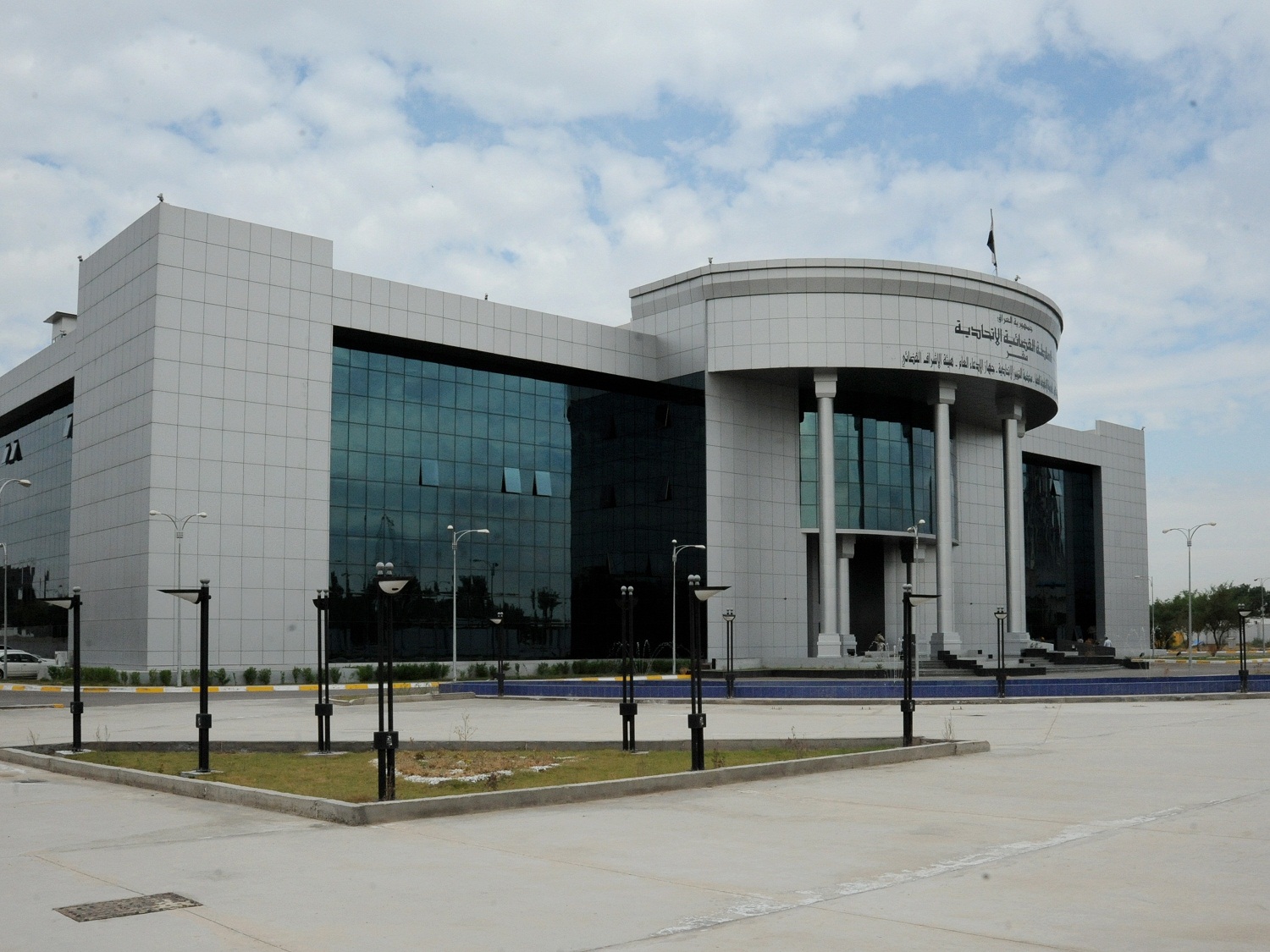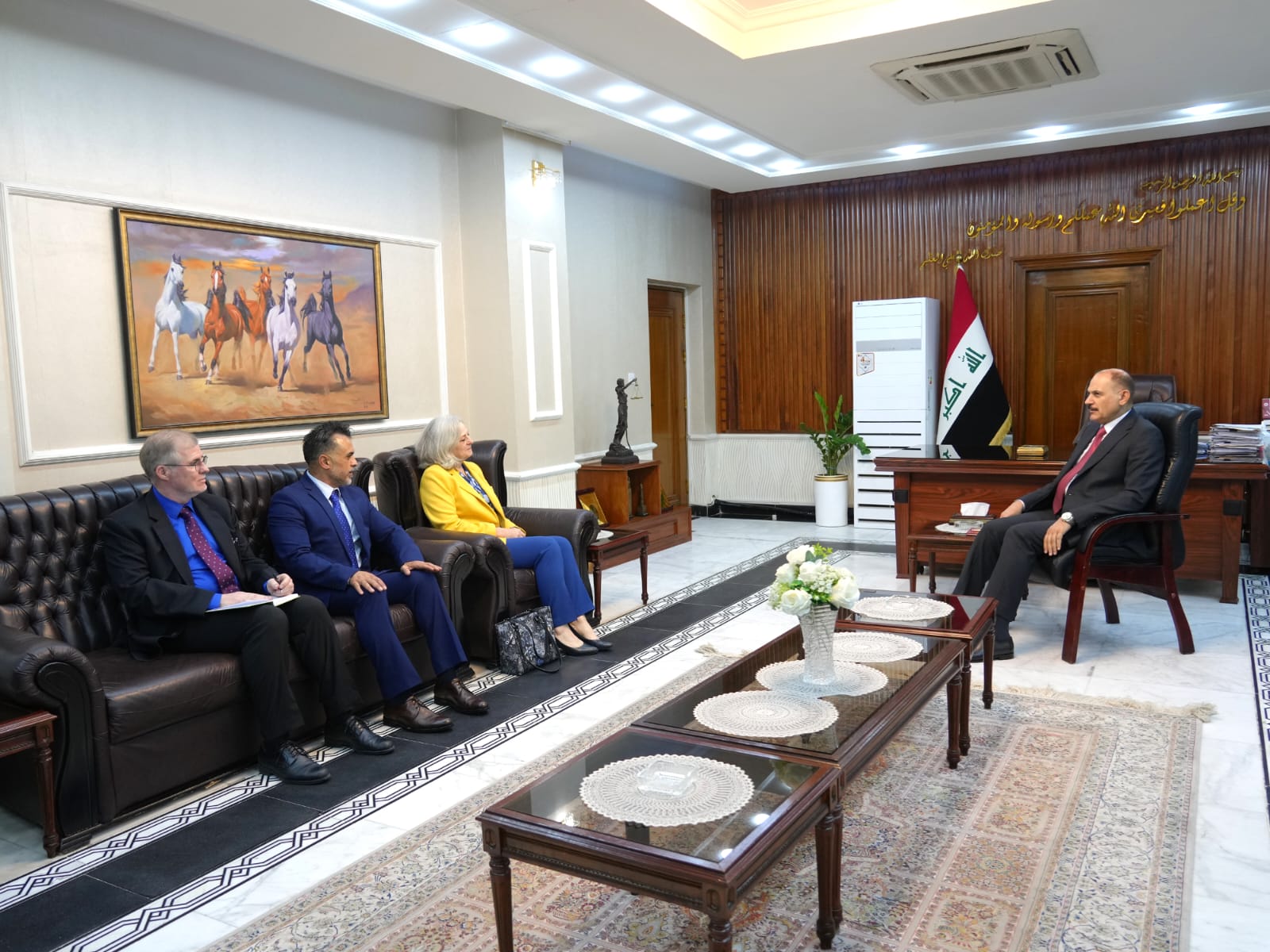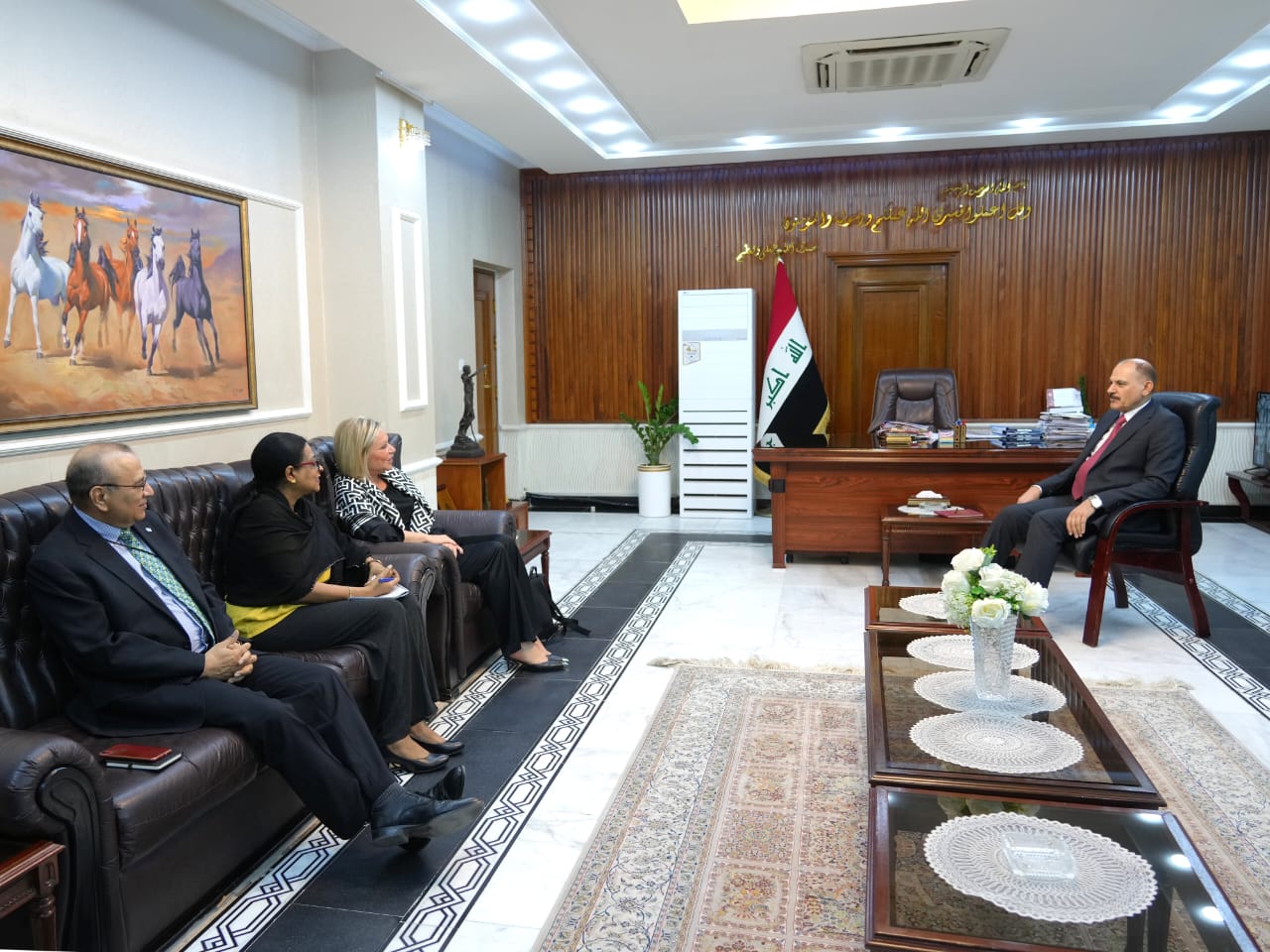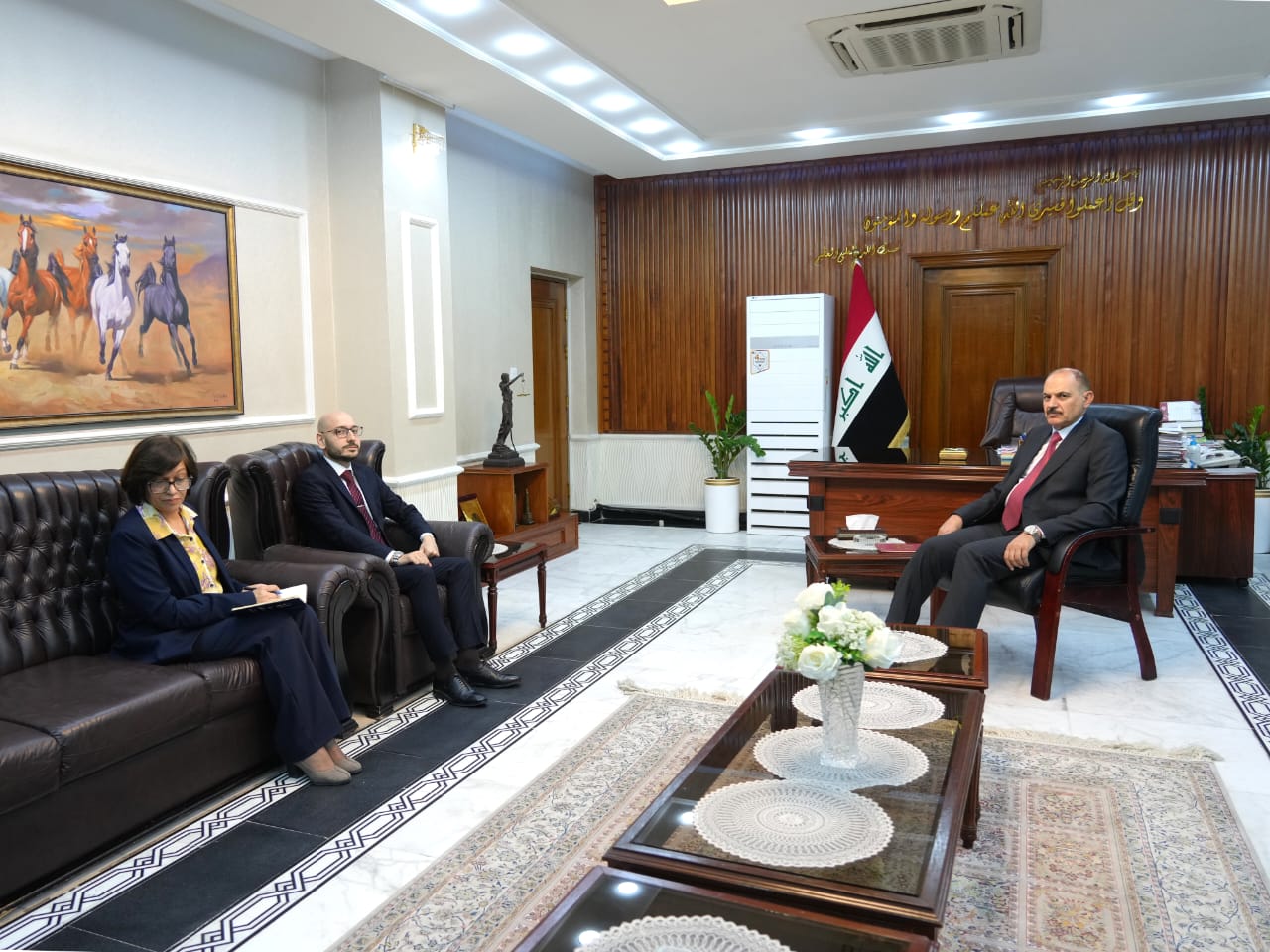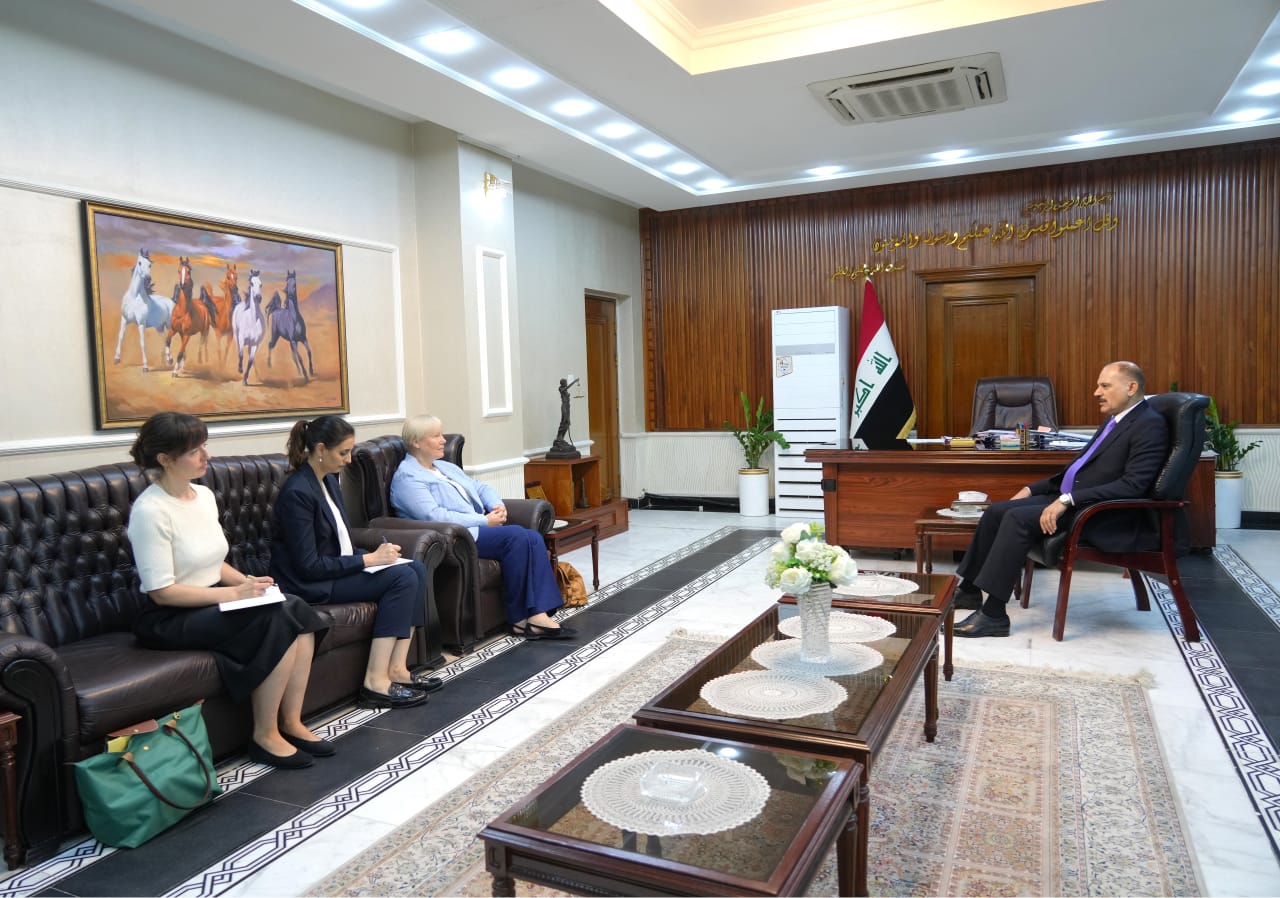
The Federal Supreme Court clarifies the constitutional mechanisms for questioning the Prime Minister and members of the Council of Ministers
Baghdad / JAMC
The Federal Supreme Court issued an interpretation of the constitutional articles related to the conduct of the questioning process inside the Council of Representatives.
Judge Abdul Sattar Bayraktar, the official spokesperson for the judicial authority, said, “The Federal Supreme Court today considered a request submitted by the General Secretariat of the Council of Representatives to explain the texts related to the questioning process. Which stipulated in article (61/7th/c) and article (61/8th/a) of the constitution, "adding that it" issued a decision about that. "
According to the decision, "the questioning must be in accordance with what is stipulated in Article (61 / Seventh - C) of the Constitution," noting that "a written request is submitted to the Speaker of Parliament from one of the representatives with the approval of 25 members."
the decision continued, "who submitted the request or whoever supports it can withdraw his request because there is no legal or constitutional impediment to withdrawing this questioning."
He explained that “withdrawing one of the applicants from the number of (25) members leads to a breach of the quorum set by Article (61/ 7th/c) of the constitution,” noting that “then the request becomes unfulfilling for the conditions required by the constitution, and in this case the questioning is canceled, and the parties must be informed of the specified date. "
The decision affirmed that "if the questioning request fulfills its conditions, the Council of Representatives shall proceed to conduct it in accordance with the constitution," noting that "the process does not take place until at least seven days have passed from the submission of the request."
He pointed out that "after the end of the questioning and checking the answers and comparing them with the evidence presented, the Council of Representatives builds its conviction in the viewpoint of the questioner after his discussion."
The Federal Court's decision added that the conviction or lack thereof "is put to the vote, so if the council votes by an absolute majority (the majority of the attendees) after achieving a quorum on its conviction of the respondent's answers, the topic will be closed."
And he went on to say that "in the event that the parliament is not convinced of the answers, then it will proceed to other steps with the withdrawal of confidence from the minister by an absolute majority," and the minister is considered resigning from the date of the decision to withdraw confidence, indicating that it is not possible "to raise the issue of withdrawal of confidence from the minister except upon the desire of the Council or based on A signed request of fifty members. "
And he added, "As for the withdrawal of confidence from the Prime Minister and the danger of this in the political life of the country and the resulting withdrawal of confidence from all ministers and the transfer of the Council of Ministers to the caretaker council until a new cabinet is formed, the constitution stipulated that the withdrawal request must be submitted in advance by the President of the Republic, The constitution also authorized the Council of Representatives, upon a request of (1/5), one-fifth of its members, to withdraw confidence as well. "
As the decision stated, "This request may not be submitted except after an interrogation addressed to the Prime Minister, and after at least seven days after submitting the request."
The decision stated that "the constitution stipulated the withdrawal of confidence from the prime minister, the vote from the council, by an absolute majority of the number of its members," and added that "in this case, the ministry is considered resigned."
He noted, "The prime minister and ministers continue in their positions to run daily affairs for a period not exceeding 30 days until a new cabinet is formed in accordance with the steps laid down in Article 76 of the Constitution."
The decision stressed that "the interrogation in all cases shall be professional and objective, free from political motives and personal reasons."
